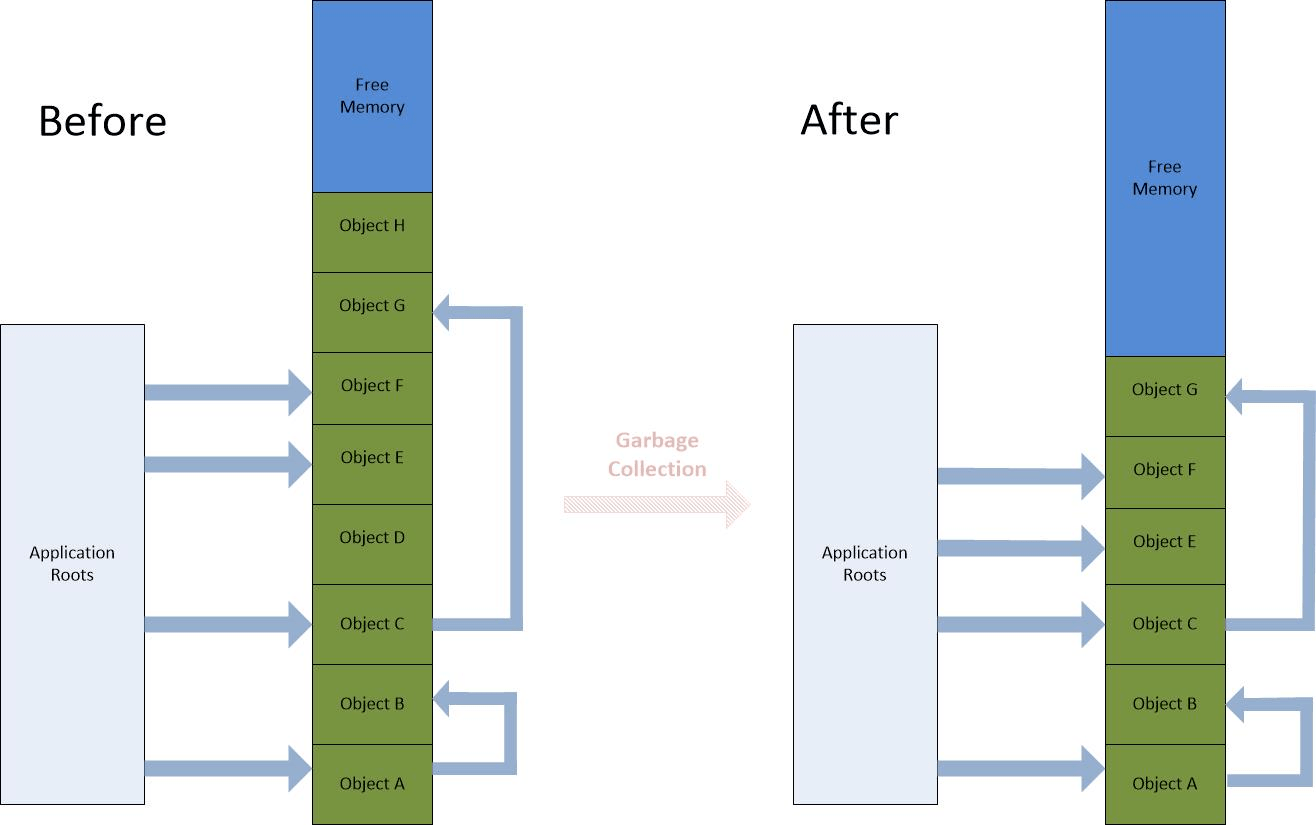C# Deep Dive
Telerik Academy Alpha
Table of contents
Stack vs Heap
Stack
-
Keeps track what is executing or what's been called
-
Keeps everything in series of boxes one on top of the next
-
We can use only the top box content
-
When we are finished with the top box we throw it away
-
The stack is self-maintaining
Heap
-
Keeps track of our objects
-
Holds information
-
Anything can be accessed at any time
-
The heap must be cleaned (Garbage Collector)
Stack vs Heap
Stack
Heap
Garbage Collector
Garbage collector
-
Unfortunately memory is not infinite
-
Manage it:
-
Manually
-
Automatically (Garbage Collector)
-
-
Manages the Heap memory
Garbage collector

Garbage Collector
-
Every object holds memory in the manged heap
-
The garbage collector is called periodically
-
If there are no direct or indirect references the GC frees the memory from the object
-
GC compacts the heap
Reference vs Value Types
Value types
- bool
- byte
- char
- decimal
- double
- enum
- float
- int
- long
- sbyte
- short
- struct
- uint
- ulong
- ushort
- System.ValueType
public static void Main()
{
int x = 5;
int y = 30;
bool isBigger = x > y;
}Value types
Stack
public int ReturnValue()
{
int x = 3;
int y = x;
y = 4;
return x;
}x | int = 3
y | int = 4
-
If we call the method it will return the value 3
-
These are all value types and are held in the Stack
(not always)
-
In method declaration they are held in the Stack
- If they are declared in a reference type they are held in the Heap
-
In method declaration they are held in the Stack
Reference types
- class
- interface
- delegate
- object
- string
- System.Object
// The class is Reference type
public class Program
{
static void Main()
{
// The list is Reference type
List<int> list = new List<int>() { 1, 2, 3 };
// The string is Reference type
string a = "Pesho";
}
}Reference types
public int ReturnValue()
{
MyInt x = new MyInt();
x.Value = 3;
MyInt y = x;
y.Value = 4;
return x.Value;
}-
If we call the method it will return the value 4
-
MyInt is a class (reference type)
- Reference types are always held in the Heap
Stack
Heap
y | POINTER
x | POINTER
Myint
Value | int
Additional Materials
Additional Materials
Questions?
[C#] Deep Dive
By telerikacademy
[C#] Deep Dive
- 1,243



